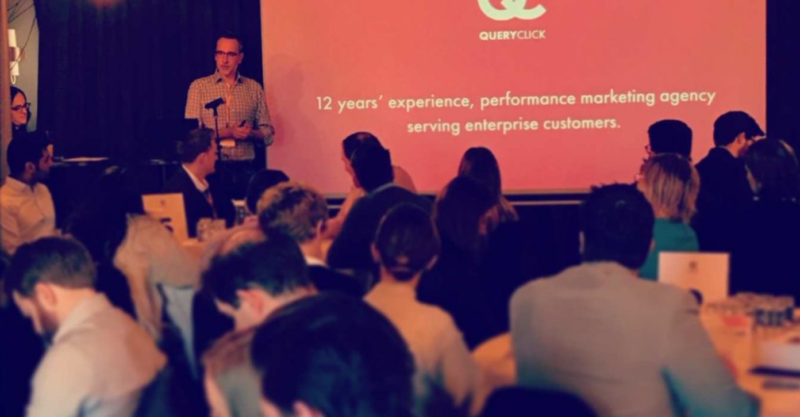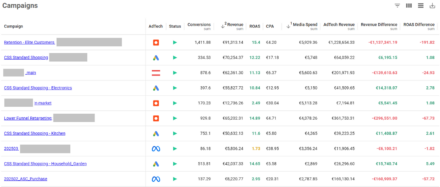Overcoming Data Silos and Broken Attribution to Maximise Your Multi-Channel Strategy

8 years ago B&Q asked us ‘how is our digital marketing was affecting our footfall?’. A common question among retailers in the industry and it was a real challenge to be able to answer this in a meaningful way. At the time it was something we couldn’t answer, but it did get us thinking about how to solve this.
The marketing mix has increasingly become more complex as spend is split across multiple channels. The eMarketer global digital marketing report shows how the trends in marketing spend has changed with marketers now in favour of digital channels such as search, programmatic and Facebook. All major areas of spend have a different measurement and a different tag, therefore increasing data silo complexity and the ability to unify all of your data is more challenging than ever before.
Continuous optimisation of these channels over the past 15 years and with so many players in the market has saturated CPAs, leaving advertisers unable to spend on cheaper channels with confidence due to poor attribution.
Why is this?
Digital marketing pioneer John Wannamaker stated back in the 19th Century and still rings true today – “half the money I spend on advertising is wasted, the trouble is I don’t know which half”.
We commissioned a survey last year asking 200 senior marketers their thoughts on marketing attribution and 90% agreed that attribution was broken and there is an over reliance on last click reports. Typically as consumers we may be influenced by out of home methods such as TV, print, billboards throughout the consideration phase. Once we reach the conversion stage towards the end of our journey we opt to use a digital channel such as search, making it a favourite with last click attribution models. By relying on last click models we are given a distorted view of how valuable all of our marketing channels truly are.
We can agree from what’s been presented so far that five key challenges CMOs are facing within the industry are:
- Multichannel data silos
- Broken single customer journey
- Flawed last click reports
- Saturated CPAs
- Marketplace cannibalisation (spending on ads we don’t need to as the customer is already converting)
With all of these challenges it’s hard to find incrementality and going back to our initial challenge proposed by B&Q we were able to come up with a solution. The problem isn’t attribution itself but starting with siloed data sources and inaccurate data.
Through the use of Machine Learning we created a platform called Corvidae, to clean your data first with a method we like to call hybrid analytics. Essentially we take your raw data and rebuild it with probabilistic and behavioral analytics to give a full picture of your customer journey, understand their purchase intent and predict their behavior.
Corvidae is 3 times more accurate than best-in-class analytics platforms using a process that repairs broken sessions and identifies channels wrongly attributed to purchasing decisions.
By solving your data problem first and creating a full picture of the customer journey and where they convert is an essential first step to any attribution process.
During its first pilot, Corvidae delivered a 37% media spend reduction and a £976k revenue uplift across £11.8m of multichannel media spend, giving an overall ROI of 40:1 for the client.
We are offering a free Corvidae Lite Audit to provide you with an idea of how much we could potentially increase your revenue by and growth scope for other channels. Book an audit with us today and let us help you get your marketing data to play together and find incremental revenue in your marketing strategy.
Own your marketing data & simplify your tech stack.
Have you read?
Chrome’s announcement on dropping cookie opt-in last month closed the door on a 5 year saga for marketers. But what is the landscape like in 2025 for cookie-based measurement?
Generative AI is transforming the way that marketers plan and assemble content for their Paid Ads. As big platforms like Google, Meta and TikTok increasingly build the tools needed to...
In a surprising move that has sparked heated debate, Mark Zuckerberg announced on his Instagram that Meta will be reducing its levels of censorship and in particular fact-checking on its...


